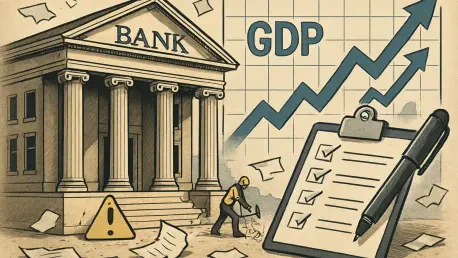
The bedrock of American economic stability, long fortified by an independent central bank operating beyond the reach of partisan politics, has been shaken by an unprecedented legal maneuver from the nation's highest law enforcement body. In a move that sent shockwaves through Washington and global

The financial sector has marked the start of 2026 with a significant move, as Livonia, Michigan-based Zeal Credit Union announced its agreement to acquire The Miners State Bank. This transaction, the first of its kind this year, not only signals a major expansion for Zeal but also underscores a

For a digital bank backed by one of the world's largest financial institutions, vanishing from the internet without a trace seemed impossible, yet that is precisely what happened to the employees and prospective customers of Jenius Bank. The ambitious fintech venture, a subsidiary of the Japanese

The rigid bi-weekly pay cycle that has long defined American work is being rapidly dismantled by a financial technology promising immediate access to earned income before a scheduled payday. This service, known as Earned Wage Access (EWA), has surged in popularity, with a market valued at $3.2

The world of U.S. bank regulation is often seen as a landscape of rigid lines and fixed goalposts, where a bank’s fate can be determined by crossing a specific asset threshold. However, a significant shift is underway, championed by both top regulators at the Federal Reserve and key lawmakers on

A quiet revolution is underway in the highest echelons of corporate governance, where a single financial institution's technological leap challenges a decades-long power structure. JPMorgan Chase, a titan of global finance, is deliberately moving to sideline the very firms that have guided